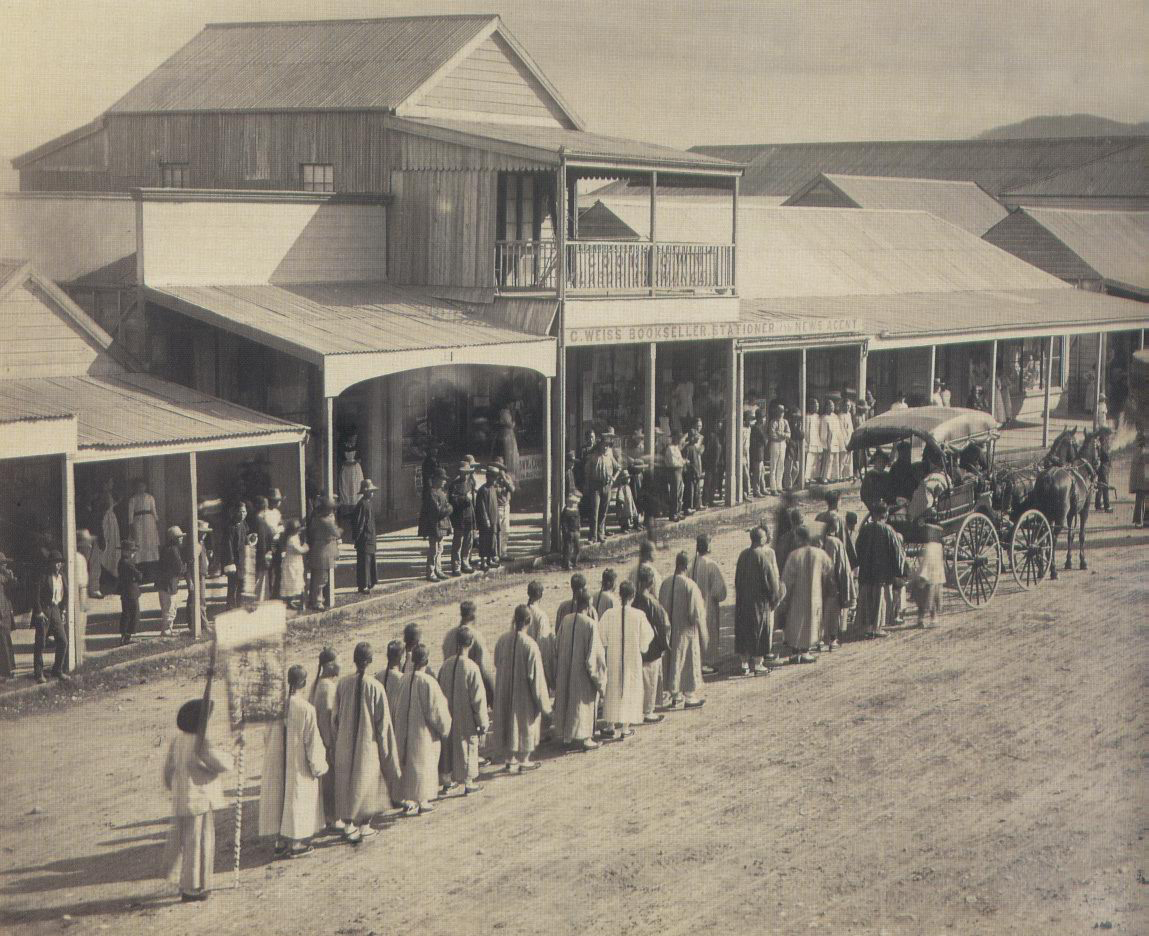Remembering Cooktown’s Chinese history

The headstone is engraved with red Chinese characters and is at a grave bordered by an ornate wrought-iron fence. The monument’s plaque reads: “This structure stands over the remains of an unknown Chinese person whose bones were found on the Palmer River goldfield. There were thousands of Chinese people buried on the goldfields of Cape York Peninsula, most of whom still lie, forgotten, in the bush. This is a memorial to all of them.”
Between 1875 and 1877, about 22,000 Chinese people passed through Cooktown, which was the supply port for the Palmer goldfields.
Chinese miners had long been a common fixture on Australia’s goldfields, but the creation of new (and cheaper) steamer routes between Australia and Asia allowed the Chinese to arrive in greater numbers than before. In 1876, a monthly service was established between Cooktown and Hong Kong, and soon Chinese miners represented 90 per cent of the population at the Palmer River goldfields. Many of these Chinese miners were indentured or contract labourers who had been ‘recruited’ by Chinese merchant firms and agents to whom they owed a debt bondage. Most were able to pay off creditors in a year or less. But others – equipped with second-rate tools and limited knowledge of goldmining – struggled to pay off their debts and were driven into poverty.
By the late 1870s, Chinese-owned businesses and services cropped up in the region, supporting the migrant population with transportation, banking, commerce and agriculture. They formed a Chinatown district on Cooktown’s western outskirts. Few traces of this settlement have survived into the 21st century, but in its heyday the district had shops, hotels, gaming saloons, market gardens, a temple and an ancestral hall.

Cooktown’s Chinese community was a mosaic of sub-communities based on dialects and kinship ties from home provinces. The largest group was Sze Yap or Sam Yap dialect speakers from Guangdong Province in southern China. Others came from Fujian Province on the mainland, or the port cities of Hong Kong and Macao. Cooktown’s Chinese community was fragmented by long-standing rivalries between dialect groups. Occasionally these tensions flared into violence, but for the most part these
groups coexisted peacefully.
The Chinese miners were not always made to feel welcome in Queensland. Although some miners stayed in Australia and adopted Western dress, married European women and even converted to Christianity, most had arrived in Queensland determined to extract gold from the fields – then swiftly return to China with their fortunes. Colonists were annoyed by their frugal spending and reluctance to stay and contribute to Queensland’s economy. In 1877, the state government passed The Chinese Immigration Regulations Act, which imposed a £10 poll tax (or entrance fee) on Chinese people arriving in Queensland. The Chinese government knew this tax was discriminatory – it was not imposed on any other ethnic group – and complained to the British government.
A Chinese delegation visited Australia and the Malay Archipelago in 1887 to investigate the conditions in local Chinese communities. The delegation was warmly welcomed by colonial authorities in NSW and Victoria, but got a frosty reception in Queensland. The Sydney Morning Herald reported: “In Queensland the Commissioners have encountered nothing but hostility. An official reception was denied them. The Premier went out of his way to tell them that Chinese people were not wanted in that colony…”
The Chinese commissioners arrived in Cooktown on 2 August. During their visit, a commissioner delivered a speech that, as reported by The Age, recognised the ways the Chinese community had “assisted in the development of the resources of [the] new country, were law abiding, and fostered commercial relations between the colonies…and deserved consideration as colonists”.


